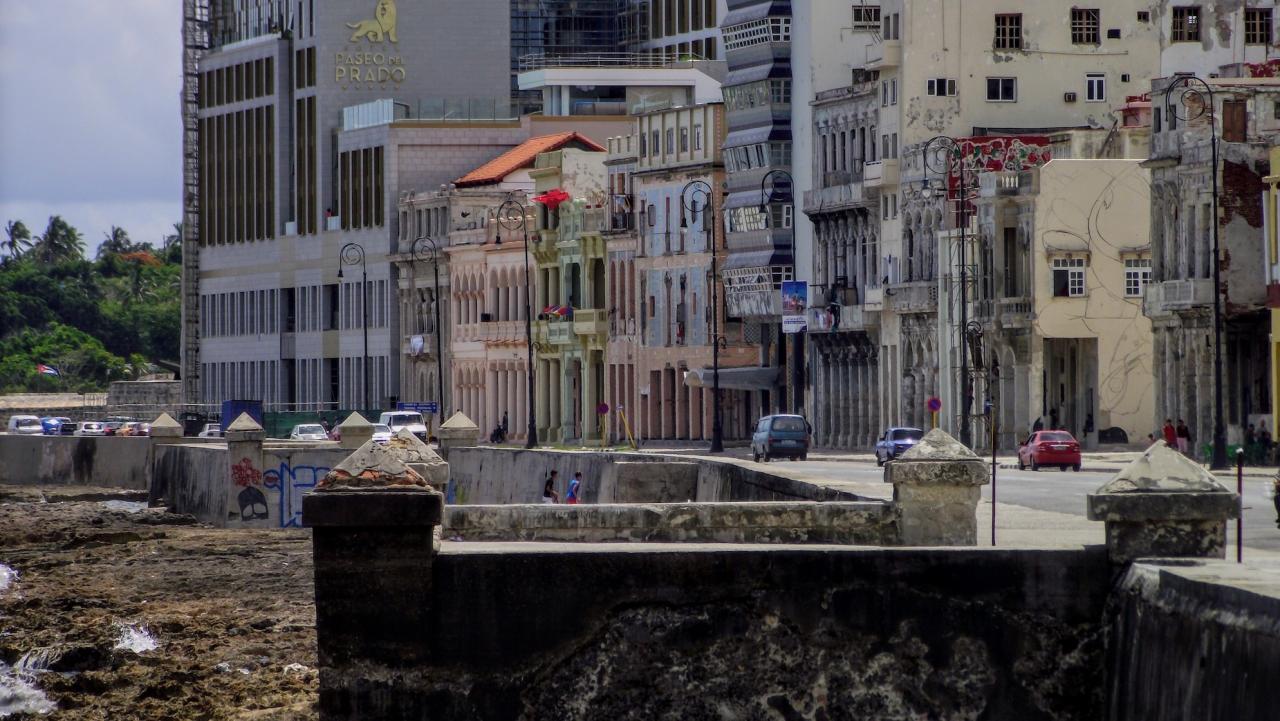Víctor Carlos Oramas gets the days of the week mixed up in Havana. He was born and raised in the barrio of El Cana, in the municipality of Cerro, "where the people's hustle and bustle, and the sound of music" once filled the days with a festive air.
"I no longer know if whether it's Wednesday or Friday. With the silence, every day is like Monday; heavy, like it's in mourning.
With great luck, you might hear a stereo on full blast on Saturdays or Sundays, as if people have lost the desire to have some fun, to celebrate life over a drink", described Oramas, a 32-year-old bodybuilder.
Although epidemiological restrictions, as a result of the pandemic, currently prevent the celebration of festivities that entail crowds of people, Havana has never been silence-friendly, but rather a bustling city, this being one of its hallmarks.
"Parties were not necessarily an excuse to make the loudspeaker available to the neighborhood, because Cubans are musical by nature, addicted to decibels," said Damián Terry, a sound engineer for more than 20 years who has worked weddings, quinceañeras, and CDR (Revolutionary Defense Committee) activities at workplaces in the Diez de Octubre's poorer neighborhoods.
"The neighborhoods of Havana, for years, were boring, because there was hardly any entertainment or recreational offerings, but music was never lacking. You knew when it was Friday out there by the volume of the music, and even by the type. But, ever since the pandemic started, Havana just shut down," Terry noted.
Some Havanans asked observed that, since the start of the pandemic in March of last year, the volume of music seems to have become yet another focus of prohibition. Several altercations between police and citizens broke out in multiple Havana neighborhoods due to the erroneous assumption that loud music was synonymous with the existence of crowds.
"Almost daily, you saw videos on social media of families or residents confronting the police, and the reason was the high volume, which supposedly, could attract crowds," said Andrés Guerra Quintana, a resident of Playa and a victim of heavy-handed policing while enjoying an evening at home with his three children and wife.
"What happened to us was not an isolated event. It is something that became an everyday occurrence, as if enjoying a Saturday with your family, inside your own house, with music, was against the rules under the lockdown. In my opinion, silence has been imposed on us in every way," added Guerra Quintana.
Residents of the Colón area, in Central Havana, noted that, in addition to the inexplicable "musical silence" reigning in one of the province's most densely populated territories, the ban on sitting on the walls of Havana's Malecón is an excessive measure.
"The Malecón is emblematic of Havana, but it’s also a kind of park for us, where we often sit to get some fresh air and unwind from the daily grind," said Ada María Cabrera, who, before the pandemic, rented rooms to foreign tourists.
"With the onset of the pandemic came the ban on sitting on the walls of the Malecón any time of day. Havanans, especially on weekends, used to end up here because it was always an escape for the poor. But I think that, without harsh control, and respecting social distancing, the Malecón could continue to be that daily outlet for those of us nearby," said Cabrera.
At first residents of areas near the Malecón thought that the ban was due to the work that the authorities had undertaken on the wall months before the spread of Covid-19. But, part of the restoration work was halted, as was work on several buildings located on this thoroughfare.
"When they opened the beaches last year they they still did not lift the ban on sitting on any stretch of the Malecón. Even those who came to throw religious offerings into the sea had to do so surreptitiously," said Vivian Durán Fernández, a resident of Cayo Hueso.
"Havana, in silence, and without the Malecón, is dead. Not even the cycle rickshaw drivers, who used to be the rowdiest in all of Havana, are seen now. Or the boys who used to sit on the Malecón with their portable speakers and liven up the weekend atmosphere a little. The truth is that now I realize that all the noise is irritating late at night, but the silence is much worse, and I can say that with some authority, because I've been living here for 59 years," added Durán Fernández.
Yoel Cordoví, a university student and resident of Vedado, described Havana as a somber city, near the old El Castillito recreational center.
"It may seem crazy, but the noise in Havana is missed. There is a sad, almost funeral-like silence, every day of the week and in every neighborhood of Havana. And that empty Malecón seems like a coffin to me. It is like a prohibition beyond what is necessary for the pandemic; as if the two things could stay that way forever. And that is precisely what I fear: Havana remaining silent, and without the Malecón, forever," concluded Cordoví.
